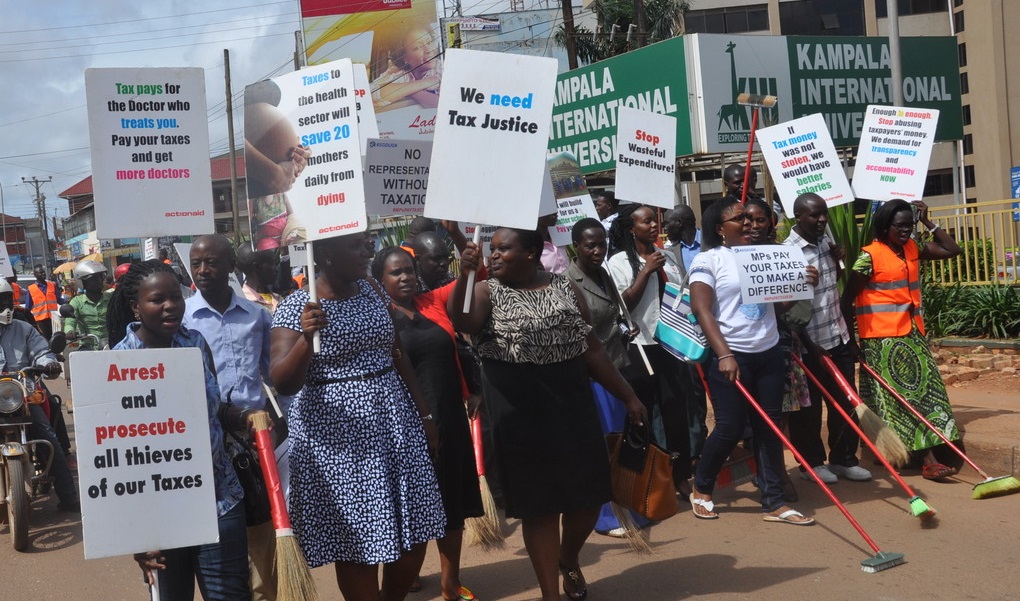By Andrew Karamagi, lawyer and a former project coordinator at ActionAid Uganda
Like the United States, Uganda’s formative history is blood-soaked.
The onslaught of British colonial rule in the late 1800s through to the immediate post-independence period, which was characterized by episodes of ethnic cleansing, civil war, strife and economic turmoil, have had effects that can still be felt, seen and heard today.
Similarly, America’s historical injustices such as the Thirteenth Amendment, which is responsible for the prevailing crisis of mass incarceration and redlining by federal institutions which led to economic exclusion for racial minorities, have ramifications that are still alive today.
Police brutality, service delivery deficits, electoral malpractice, governmental corruption, acts of military aggression abroad in the name of foreign policy and ethnic (racial) injustice are rife in both societies.
This article contends that both Ugandans and Americans are gridlocked in peculiar but connected systems characterized by economic exclusion, predatory state behavior, and dysfunctional social service delivery mechanisms that have been overrun by the “free” market.
The incumbencies of autocrats Donald Trump and Yoweri Museveni have only served to exacerbate these excesses.
Where Uganda’s security forces have openly and enthusiastically stifled the enjoyment of civil and political liberties, the derailed Republican Party is also in overdrive, placing subtle but no less harmful hurdles in the way of voters to maintain its grip on power. The objective is the same.
My Ugandan Experience
The rulers of my country shot their way to and have (undemocratically) been in power for longer than I, and millions of my fellow youth, have been alive.
Collectively, ours has been a sad story: broken promises, dashed dreams and unfulfilled hopes. Inevitably, the discomfort that such a situation causes has made my generation a restless and angry lot. Predictably, the state has routinely responded with either coercion or indifference.
Uganda, at least in theory, is a constitutional democracy that features legislative, executive and judicial branches of government, underpinned by the doctrines of separation of powers and the rule of law. But each year that passes has presented more democratic reversals, not least the infamous removal of presidential terms limits in 2005 and the subsequent forceful deletion of the presidential age limit in 2017.
In human terms, which I have witnessed firsthand as a human rights lawyer and community organizer, this translates into repressive legislation, economic dislocation, disregard of due process rights, torture, extrajudicial killings and regional refugee crises beyond our borders.
The previous three electoral contests have progressively fallen far short of the bare minimums, yet the ability to conduct free and fair elections is an avenue that would facilitate peaceful political transition. As our own Ugandan history shows, failures of the electoral systems have often ended up in civil strife and war, as was the case in 1980 when Museveni resorted to arms to contest a rigged election. Most recently, the 2016 presidential and parliamentary elections led to a stalemate whose socioeconomic ripples are still evident.
American tax dollars have also reinforced the coercive functions of the Ugandan state back home and enabled military adventurism abroad in Somalia, the Democratic Republic of the Congo, South Sudan, Chad and Burundi, in the name of peacekeeping and peace support operations. In the East and Horn of Africa regions, Uganda is a major player in the so-called Global War on Terror, which is interpreted as a carte blanche for human rights violations and related excesses.
American budget support and trade relations through initiatives like the African Growth Opportunity Act have fueled corruption, expanded external debt and legitimized a thoroughly undemocratic government. Other forms of American aid have perpetrated a master-servant relationship which harms prospects of constructive bonds.
There is no denying that some good has been realized out of the decades-old Ugandan-American partnership: student exchange programs have benefited both countries, economic growth (albeit not evenly distributed) has been realized as an outcome of business relations on either side of the proverbial pond. However, these are exceptions that prove the general rule.
Notwithstanding Donald Trump’s isolationist foreign policy, his tenure has only served to embolden and cement this unhealthy state-of-affairs and give free rein to autocrats. Mid- to long-term, this harms American economic and geopolitical interests because an unstable Uganda (and, by extension Great Lakes Region) makes our interconnected world a less secure place.
Tightening solidarity
The Alt-Right and its enablers in corporate America and the Ugandan regime’s functionaries (like others elsewhere on the continent) are working overtime to keep progressive forces and initiatives aground and distracted. The case for cross-border solidarity by working people, students, progressive political actors and civic organizations can no longer be ignored.
If there is one irrefutable lesson that the novel coronavirus has taught us, it is that any public threat, even at the microscopic level, should be of concern to the entire human family. Security and success are not and cannot be viewed through individual lenses. They are communal, societal.
A conversation about what solidarity would like during and beyond the electoral seasons in both countries, what collaborations young people can venture into and, more importantly, the values and ideals that should guide our shared world moving forward is a worthwhile and timely undertaking.
In the meantime, as Americans go to the polls in November and Ugandans in February, we should bear in mind that our destinies are interconnected even though geography may keep us physically disparate.
Our votes should unequivocally reflect that level of consciousness.


